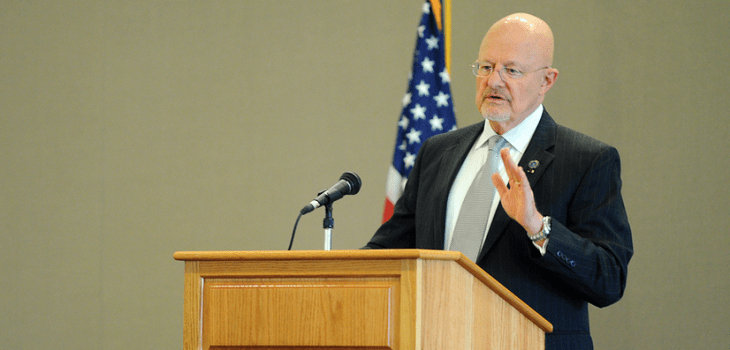A new policy put in place this March effectively bans members of the U.S. intelligence community from speaking to the media, even when discussing unclassified matters.
The new rules have sparked outcry from many outside the government, given that the policies as detailed in the directive further clamp down on interaction between the public and intelligence denizens.
The rules are similar to a proposal that died in the Senate in 2012 over concerns regarding their overzealousness. The ACLU’s Gabe Rottman stated in response to the directive that James Clapper, director of National Intelligence, “is trying to do by decree what he couldn’t secure through our elected representatives.”
Here’s the key line from the directive, forcing members of the intelligence community to receive permission to speak to anyone in the media:
![]()
Failure to follow the new rules can lead to the loss of classified access, or even termination:

So what about whistleblowing through the media? Don’t count on it. The directive notes with little apparent ironic self-awareness that there are internal methods in place to report fraud, waste and so forth. In short, the NSA would like to keep its dirty laundry to itself, thank you very much.
It’s also worth noting that whistleblower protection, such as it exists internally, doesn’t apply to contractors, the very sort that our intelligence apparatus depends upon. This impacted Edward Snowden, who recently stated that he tried to reach out to several people inside the larger intelligence world, but made little or no progress. He continued:
Yes. I had reported these clearly problematic programs to more than ten distinct officials, none of whom took any action to address them. As an employee of a private company rather than a direct employee of the US government, I was not protected by US whistleblower laws, and I would not have been protected from retaliation and legal sanction for revealing classified information about lawbreaking in accordance with the recommended process.
Given how much we now know about the NSA et al, I’d hazard that clamming up and preventing interaction between the media and the fine folks of the intelligence world isn’t a very good idea. It’s hard to engender anything approaching trust when you are barred from speaking with the other party.
The following from Jesselyn Radack of the Government Accountability Project regarding the directive is correct:
This latest action is a clear extension of the executive branch’s war on national security whistleblowers. It is a grotesque twist for James Clapper to limit public knowledge about government activity when he himself has been responsible for lying to Congress and misleading the public about the government’s overreaching mass surveillance programs.
Precisely.
IMAGE BY FLICKR USER U.S. Coast Guard UNDER CC BY 2.0 LICENSE (IMAGE HAS BEEN CROPPED)
